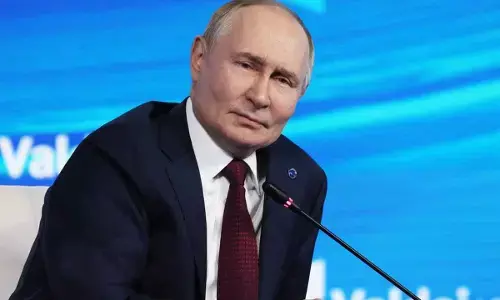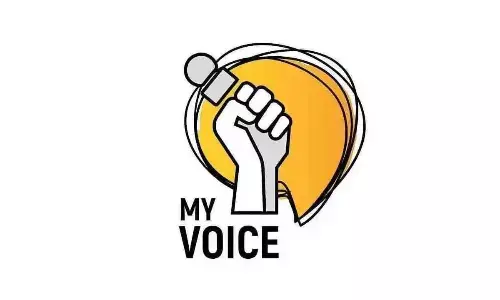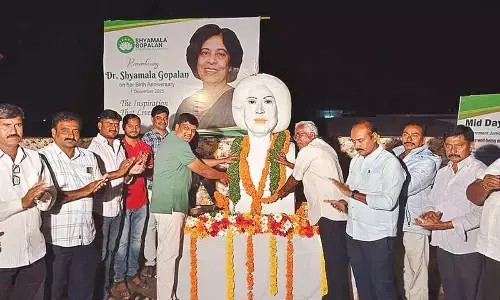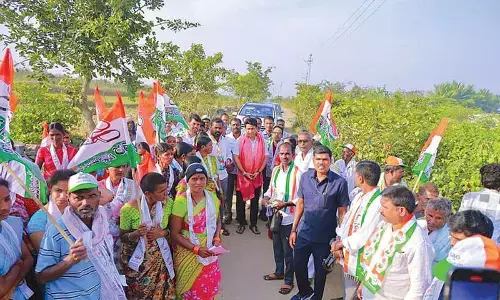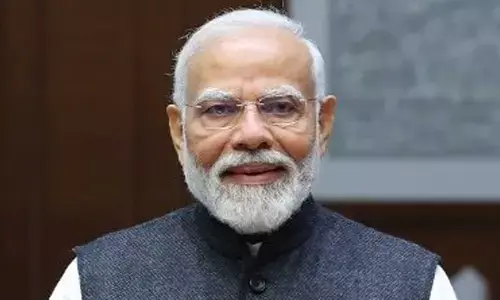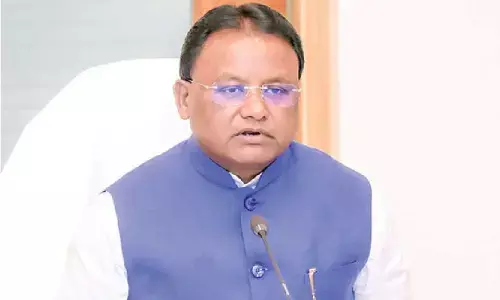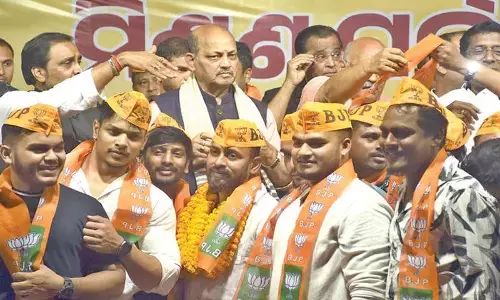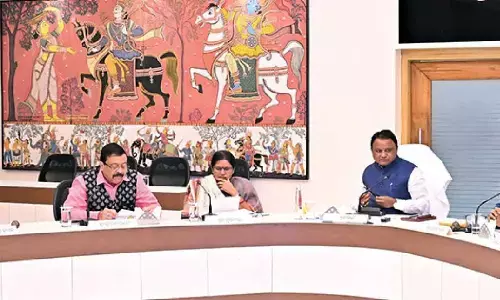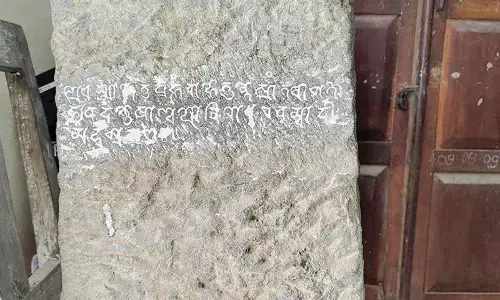People’s issues and aspirations should be at the heart of the battle of ballot!
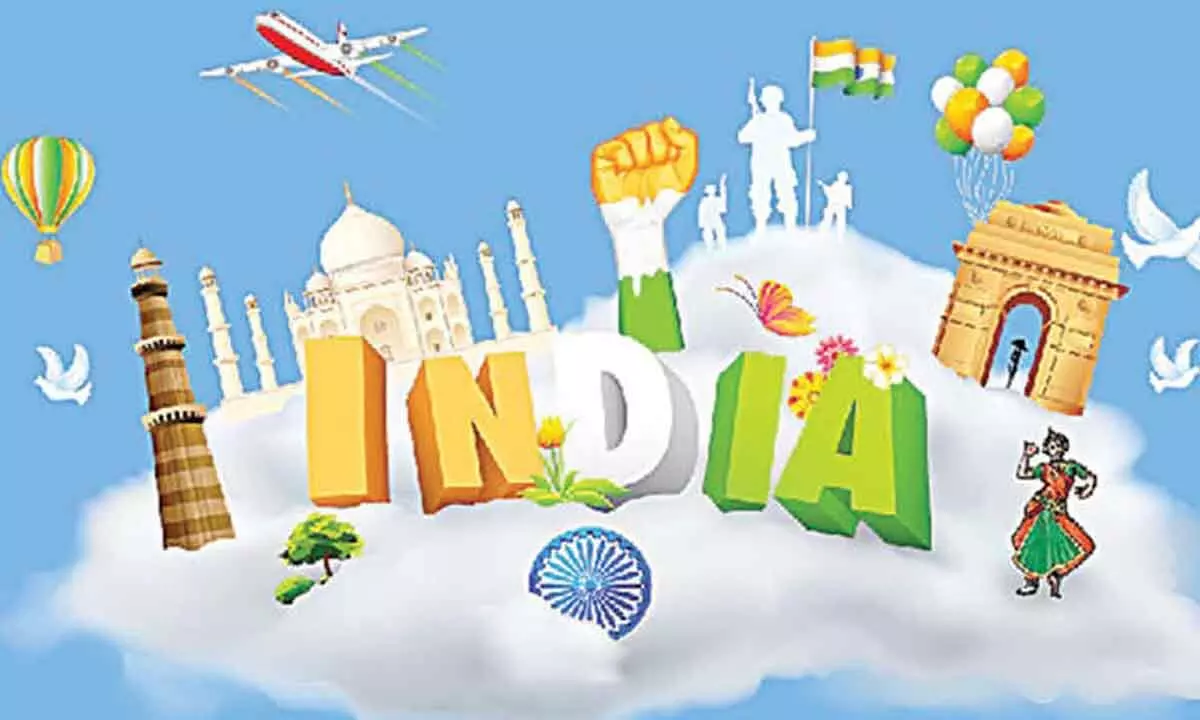
Viksit Bharat aims to transform India into a beacon of opportunity and prosperity for every citizen
Oursis a blessed nation. Our electoral democracy - so comprehensive - stands as a cornerstone of modern governance, offering us a fundamental mechanism to express our collective will and shape the trajectory of our societies.
From panchayats to Parliament, our democratic ecosystem aims at promoting inclusivity by providing citizens with the opportunity to participate in the decision-making process, regardless of their background or status. Through elections, we hold our representatives accountable, ensuring that those in power remain responsive to the needs and aspirations of the populace.
Our electoral democracy fosters stability and peaceful transitions of power, offering a vibrant means to serve the nation and its people. It upholds the principles of pluralism and tolerance, allowing diverse voices to be heard and respected within the political sphere. It serves as a vital instrument for safeguarding people’s rights, promoting social justice and advancing the collective welfare of communities across the country.
Prime Minister Narendra Modi in his March 20 video address during ‘Summit for Democracy’, said: “Over the last decade, India has moved forward with the mantra of ‘Sabka Saath, Sabka Vikas, Sabka Vishwas, Sabka Prayas,’ that is, collective efforts for inclusive growth. Reaching out to all sections of society, particularly the poor, women, youth and farmers has been our priority in the true spirit of inclusivity. We have transitioned to performance-based governance, where shortages, corruption and discrimination have been replaced by transparency, accountability and opportunity...Riding on the power of youth and technology, India has rapidly developed into the world’s third largest startup ecosystem. Over 1.4 million elected women representatives at the grassroots level are our agents of change for women-led development.”
Modi further said: “Today, India is not only fulfilling the aspirations of its 1.4 billion people, but also providing hope to the world that democracy delivers and democracy empowers. When the Indian Parliament passed a law to ensure minimum one-third representation for women legislators, it gave hope to women across the democratic world. When India lifted 250 million people out of poverty in the last 10 years, it reinforced global faith in democracy as an agent of positive change...Now, as India is on track to become the world’s third-largest economy, it gives hope to millions of people around the world for a brighter future. As India resolves to become a developed nation by 2047, it shows that democracy can aspire, inspire, and achieve...in the era of turmoil and transitions, democracy faces many challenges. This requires us to work together. Democratic countries should lead the efforts in making international systems and institutions more inclusive, democratic, participative, and fair.”
So what are the key ingredients of our democracy, as reiterated by the Prime Minister? These are inclusivity, empowerment of women empowerment, accelerating the pace of positive changes, and ensuring that there is no discrimination against any social group on the basis of their caste, religion, faith and race. It is, therefore, expected from all political parties to address people’s issues and aspirations in their manifestoes. Their commitment to the vision of Viksit Bharat must encompass our collective aspiration towards comprehensive growth and progress across various sectors. It must reflect the nation’s ambition to achieve economic prosperity, social equity, technological advancement, and environmental sustainability.
Through strategic policies, inclusive development initiatives, and investment in key areas such as education, healthcare, infrastructure, and industry, Viksit Bharat aims to transform India into a beacon of opportunity and prosperity for all its citizens, while also contributing positively to the global community.
All regional and national parties must find a lasting solution to income disparities, a major hurdle in realizing the goal of Viksit Bharat, hindering the nation’s quest for comprehensive development and prosperity. When a significant portion of the population lacks access to adequate income and economic opportunities, it not only perpetuates social inequality but also stifles overall economic growth.
Wide income gaps can lead to social unrest, reduced consumer demand, and limited access to essential services such as education and healthcare, thereby impeding human capital development and productivity enhancement. Addressing income disparities requires targeted policies focused on equitable wealth distribution, inclusive economic growth and skill development initiatives that uplift marginalized communities and ensure that the benefits of progress are shared by all.
Why addressing income disparities should be a key priority for all stakeholders?
According to a working paper titled ‘Income and Wealth Inequality in India, 1922-2023: The Rise of the Billionaire Raj’ has stated that between 2014-15 and 2022-23, the rise of top-end inequality has been particularly pronounced in terms of wealth concentration with the income and wealth share of the top one per cent of the population rising to 22.6 per cent and 40.1 per cent, respectively in 2022-23. The paper authored by Thomas Piketty of Paris School of Economics and World Inequality Lab, Lucas Chancel of Harvard Kennedy School and World Inequality Lab, and Nitin Kumar Bharti of New York University and World Inequality Lab, stated: “By 2022-23, the top one per cent income and wealth shares (22.6 per cent and 40.1 per cent) are at their highest historical levels and India’s top one per cent income share is among the very highest in the world, higher than even South Africa, Brazil, and the US.”
The World Inequality Lab said factors, including a lack of education, have trapped some people in low-paid jobs and depressed the growth of the bottom 50 per cent and middle 40 per cent of Indians.









